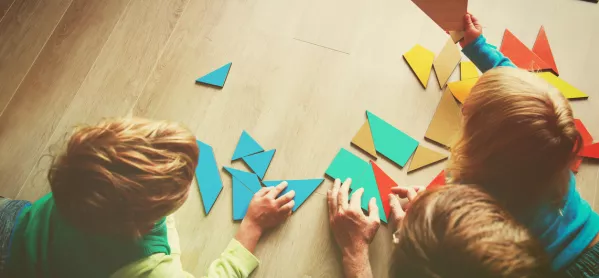What does the new EYFS say about early science?

As I read all the new documentation, articles, and blogs about the rollout of the new EYFS, there were many questions that come to mind. I sighed as I picked up my highlighter pen. I wondered where to begin.
At my school, we started by breaking it down, sharing the load as a team, with each person taking a smaller area of the new EYFS to compare to the current framework. I took the science aspect of knowledge and understanding the world.
My reluctance towards this new framework is perhaps because it is perceived to be moving in a more formal direction. I was curious to see if this was the case with science. I know I am not alone in the general view of wondering why it needs to be changed.
I started with an overview of our reception topics, mapping out the teaching through the year, looking quite broadly at where we offer teaching in science, considering visits and experiences. I felt it was important to cast a critical eye over what we already do.
Asking key questions
It can be tempting with any of the new areas of EYFS, to spend hours comparing each aspect word for word, particularly with the detail in Development Matters 2020. My advice is this: don’t do it. You’ll end up going around in circles. Ultimately, we need to slow down and ask ourselves two simple questions.
- Do I feel that our current curriculum planning will still enable children to achieve the new early learning goals (ELG)?
- Are there any new aspects that I now need to include either through planned direct teaching or resourcing within continuous provision?
Identifying key changes
There will inevitably be a few small adjustments; I noted the mention of children “drawing on what they have read in class” and so we will need to ensure we carefully plan our reading of non-fiction texts ideally linking them to aspects of knowledge and understanding the world (KUW).
Seasons also feature more in the new ELG. We often learn about the seasons, but it tends to be more incidental. I think this could be developed further with planned stories, walks and investigations.
Do we need to make big changes?
After taking an honest look at our teaching, I consider that the children do already practise lots of the skills outlined.
The emphasis in the new framework is the natural world. Our children are taken out on welly walks, trips to the farm, and enjoy visits from animals. We are fortunate to have an outdoor space that features a natural environment.
Children often visit the pond, spot wildlife, minibeasts and generally embrace the wonder of the outdoors. So, do I need to drastically change any of this provision? To my relief, no, absolutely not.
Most importantly, all the wonderful experiments and investigations that the children are provided with should still happen. It is important that we continue to encourage the investigative nature of early years in its broadest sense.
How much or little of this we need to do, will totally depend on the next cohort of children. It is likely that we will need to build in some extra teaching because of the missed opportunities through the pandemic this year.
Maintaining EYFS principles
There is a danger here of getting sidetracked with a focus on coverage. We maintain a very flexible approach to our EYFS teaching that is shaped by the children’s interests and by the needs of the cohort and I would hate to move away from that.
Recently, there was quite an obvious interest in dinosaurs amongst our Reception boys and so naturally that became the topic. Dinosaurs were clearly very engaging, but children’s knowledge was already impressive, and they needed some challenge.
By limiting the teaching, the children would not have achieved so much. Our knowledge of the children informed the content of teaching and most importantly the pitch.
The next challenge
After processing some of the changes, I am feeling more reassured that we don’t need to lose our key principles. There can be a transitional period in which we priortise settling children back into school and consider their individual learning needs.
I predict the greater challenge will come in the capturing of evidence and the interpretation of what that looks like. I wholeheartedly agree with many professionals who are calling for more professional trust.
There is little point in changing the ELGs if we are still required to provide the same amounts of data and evidence. We need to have the freedom to assess the children in a way that is appropriate to early years.
You need a Tes subscription to read this article
Subscribe now to read this article and get other subscriber-only content:
- Unlimited access to all Tes magazine content
- Exclusive subscriber-only stories
- Award-winning email newsletters
Already a subscriber? Log in
You need a subscription to read this article
Subscribe now to read this article and get other subscriber-only content, including:
- Unlimited access to all Tes magazine content
- Exclusive subscriber-only stories
- Award-winning email newsletters